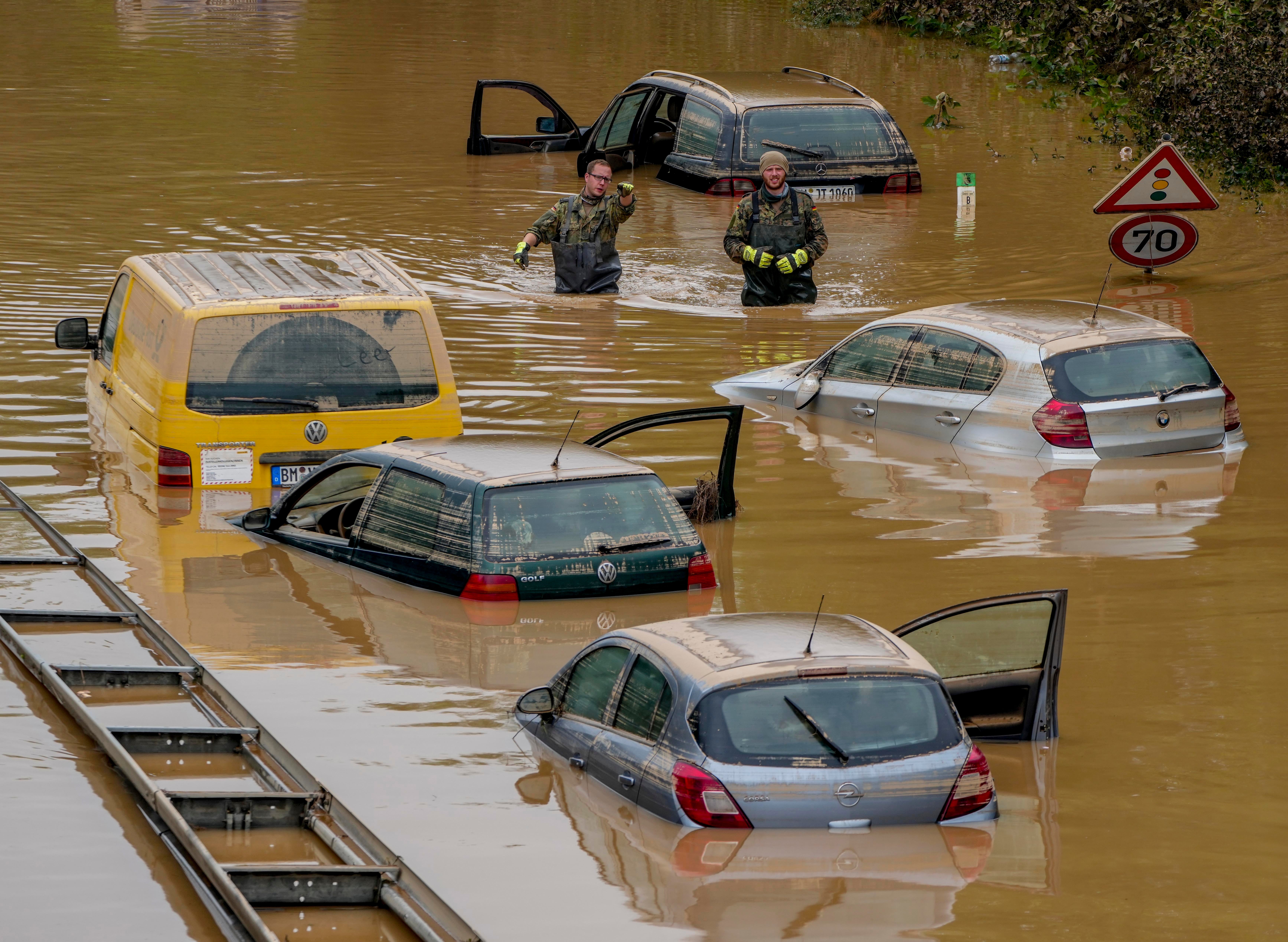Study: Climate change makes European flooding more likely
Scientists say global warming makes the kind of extreme rainfall that caused deadly flash flooding in western Europe last month more likely

Your support helps us to tell the story
From reproductive rights to climate change to Big Tech, The Independent is on the ground when the story is developing. Whether it's investigating the financials of Elon Musk's pro-Trump PAC or producing our latest documentary, 'The A Word', which shines a light on the American women fighting for reproductive rights, we know how important it is to parse out the facts from the messaging.
At such a critical moment in US history, we need reporters on the ground. Your donation allows us to keep sending journalists to speak to both sides of the story.
The Independent is trusted by Americans across the entire political spectrum. And unlike many other quality news outlets, we choose not to lock Americans out of our reporting and analysis with paywalls. We believe quality journalism should be available to everyone, paid for by those who can afford it.
Your support makes all the difference.Scientists say that global warming makes the kind of extreme rainfall that caused deadly flash flooding in western Europe last month more likely, though it remains unclear exactly how much.
At least 220 people died in Germany and Belgium on July 14-15 when swollen streams turned into raging rivers, sweeping away houses, roads and bridges, and causing billions of euros (dollars) in damage.
A study released Tuesday by the World Weather Attribution group used historical records and computer simulations to examine how temperatures affected rainfall from the late 19th century to the present. While the study hasn’t been assessed by independent scientists yet, its authors use widely accepted methods to conduct rapid assessments of specific weather events such as floods, droughts and heat waves.
It found that across a large strip of western Europe — stretching from the Netherlands to Switzerland — the amount of rainfall in a single day increased by 3% to 19% over the period, during which global temperatures increased by 1.2 degrees Celsius (2.2 degrees Fahrenheit).
Experts say that for every 1 degree Celsius (1.8 F) the planet warms, the air can absorb 7% more water. When that water is released, it causes more extreme rainfall.
The study, conducted by almost 40 researchers from six European countries and the United States, calculated that downpours of the kind that caused last month's floods are now 1.2 to 9 times more likely — and this will increase further if the planet continues to heat up.
Frank Kreienkamp of Germany's nation weather service DWD, who co-wrote the study, said the findings supported forecasts in a recent U.N. climate report.
“Humans are clearly changing and warming up the Earth's climate,” he said. “And with this warming we are also seeing a change in weather extremes.”
The authors said the damage and loss of life seen in this disaster highlight how nations need to do more to curb greenhouse gas emissions and prepare for such disasters.
“These floods have shown us that even developed countries are not safe from severe impacts of extreme weather that we have seen," said Friederike Otto, associate director of the Environmental Change Institute at Oxford University. "This is an urgent global challenge and we need to step up to it. The science is clear and has been for years.”
___
Follow AP's climate coverage at http://www.apnews.com/Climate